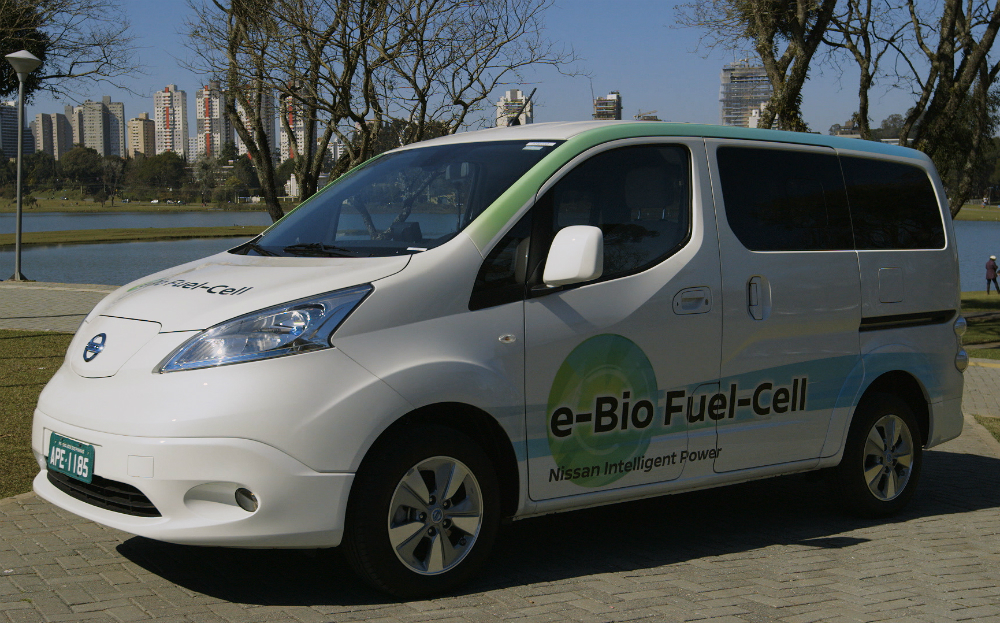Nissan reveals fuel-cell car that runs on bio-ethanol
Car maker says concept is best suited to South America

NISSAN has revealed a working prototype of a car that is powered by a fuel-cell run on bio-ethanol fuel. The concept does away with bulky tanks for storing hydrogen which typically powers a fuel-cell car, promises a driving range of nearly 400 miles and Nissan believes that it would be cheaper to drivers than any future electric car that manages to travel a similar distance on a single battery charge.
Known as a solid oxide fuel-cell, the prototype is based on a Nissan NV200 van — a far cry from the glamour of, say, a Tesla electric car. It was revealed this week in Brazil.
Nissan says it can also run on ethanol and natural gas. It takes hydrogen that is produced when using the fuel and mixes it with chemicals to produce electricity, which powers a 24kWh battery that drives an electric motor.
Browse NEW or USED cars for sale on driving.co.uk
Other car makers, including Hyundai, have already put hydrogen fuel cell vehicles into production, albeit in highly limited numbers.
The Japanese car maker believes the approach would be best suited to regions such as South America, where the infrastructure already supports production and use of bio-ethanol fuels, mainly sourced from sugarcane and corn.
Carlos Ghosn, CEO of Nissan, said: “Ethanol-blended water is easier and safer to handle than most other fuels. Without the need to create new infrastructure, it has great potential to drive market growth.”
However, the likes of Elon Musk, boss of electric car maker Tesla Motors, believe that sustainable, solar-generated electricity is the most efficient approach when it comes to powering a car using electricity.




